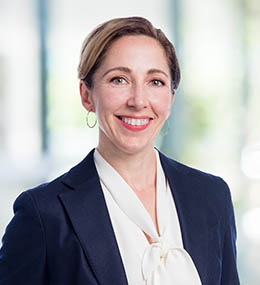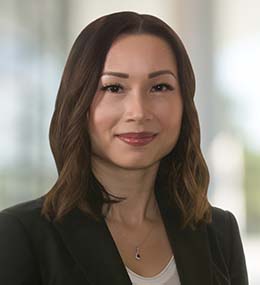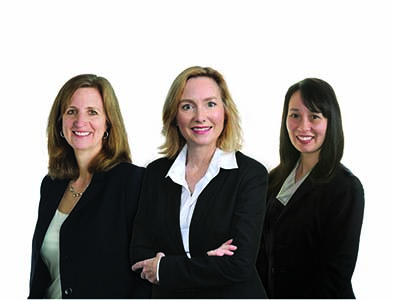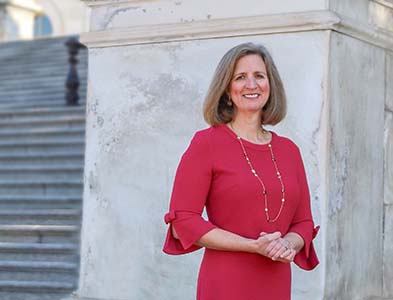Leading Women at Stout Michelle Johnson and Emma Bienias
Leading Women at Stout Michelle Johnson and Emma Bienias
At Stout, we're thankful for both the amount and the caliber of the professionals who make up our team. Here, we highlight two leading women at our company:
- Michelle Johnson, Chief Revenue Officer
- Emma Bienias, Managing Director; Disputes, Compliance, & Investigations
They reflect on their career paths, obstacles they have overcome in their professional growth, and the path to creating a gender-inclusive company culture. See other leading women at Stout.
Tell us about your career path. How did you get to where you are today?
Johnson: Prior to joining Stout, I spent over 20 years serving multinationals with complex tax valuation matters in a field called transfer pricing. After working for many years as a Managing Director at Duff & Phelps, I found success in developing new services by combining valuation, debt opinions, and transfer pricing experts from different teams to help address new U.S. Treasury regulations affecting our clients. This led to significant new business for my firm and taught me that collaboration across service lines was extremely powerful. This ultimately led me to become the Deputy Chief Revenue Officer of Kroll, a 5,000-person company in 38 countries, which was the position I left to join Stout.
Bienias: I started my career in consulting. I really liked the variety of having different projects all the time, different clients, and different exposure to people within those clients. For the past 20 years, I've stayed in consulting because of that original reason for wanting it: Variety.
What does your current role at Stout entail? What are some of your favorite parts about the job?
Johnson: A Chief Revenue Officer leads the design and implementation of the firm's revenue growth strategy. Right now, one of Stout's biggest growth opportunities is to systematically solve bigger problems and meet more urgent needs for our existing clients. Clients no longer want to work with dozens of advisory firms who each do one thing and know only a little about their business. Instead, they want trusted partners who thoroughly understand their organizations' core needs and concerns. My team will align resources, roles, and incentive structures to make sure that people with client relationships bring in the best Stout experts for whatever matter is most pressing for our client.
Bienias: My current role is Managing Director within the Disputes, Compliance & Investigations (DCI) Group; specifically, I'm a full-time Business Development person. I never considered myself a salesperson, I still don't, and I was asked to start doing more of it when our former Business Development person left. I'm doing something I never thought that I could do.
My favorite part of the job is the people. I don't work within just one department, but I help support the entire DCI group. I get to interact with different experts in different offices in different practices, from DCI to Investment Banking to Business Valuation. I love getting to meet people across the firm.
What was a challenge you faced in your own career growth? How did you overcome it?
Johnson: One challenge I faced was learning how to generate revenue and build a book of business. Pretty ironic for a Chief Revenue Officer, right? In this field, you're rewarded, praised, and promoted based on technical experience for many years, but eventually that changes. At some point, you need to change your skillset to network, develop relationships, and understand clients' problems. Learning to do that was a significant challenge. Thankfully, I had mentors who showed me that true selling is developing trust and solving problems. Once when I joined a new firm, I decided to find colleagues down the hall who had some of the company's largest client relationships. I learned we were doing a ton of valuation work with these companies, but no one in the firm was solving their transfer pricing problems. I got to know my colleagues first, and once they trusted me and understood what I did, they began feeling comfortable introducing me to their clients. Once I had an open door, I started figuring out how to listen effectively, solve problems, and stay collaborative. Eventually, I had a big enough base of trusting clients from this path that I could go out on my own with confidence to find new relationships for the firm.
Bienias: When I was asked to be a Business Development person, it wasn't something that I had chosen myself, so I was getting out of my comfort zone; I had to shift from doing the work to selling the work. At that point, I didn't consider myself seasoned enough to be networking and selling our services to partners at law firms. I hadn't sold a single dollar of work before taking on the role and didn't have a large number of contacts to reach out to, I was starting from scratch. I realized that Business Development is about relationships. Instead of focusing on the selling aspect, I shifted my mindset on building and developing trust with these attorneys.
What role do you play in helping to increase the number of women in senior leadership roles?
Johnson: You have to be able to generate revenue in order to get to senior leadership roles at a firm like ours. I have a role in helping women do that, whether it's by setting an example, connecting women to opportunities within the firm, or providing effective educational resources.
Bienias: I actively looking for senior women to help recruit into the practices. When I come across exceptional female experts and professionals, I try to funnel them up to management to consider for growth opportunities.
What role have you played in advancing Stout's diversity, equity, and inclusion (DE&I) efforts?
Johnson: Being relatively new to the firm, I have been impressed by Stout's current DE&I efforts. I am looking forward to finding opportunities where I can help it advance even further. I am particularly interested in supporting women who are navigating challenging career demands while raising young children. This was one of the hardest times for me personally, and I am passionate about supporting women who are going through this phase. One way I try to help in this area is through my role as President of an organization called Big Careers Little Kids. I look forward to connecting Stout professionals to this fantastic network of over 400 female leaders in law, finance, and business who are raising kids.
Bienias: I look for talent at both the senior and the staff level, and I try to identify women who hold lots of potential. When we were working in the office, I also used to host a quarterly women's luncheon where we were all able to connect, talk, and have a community.
What advice would you give to young women beginning their own career climbs in the finance industry?
Johnson: Build your network early. Women have so much in common with one another in this industry, and there are so many opportunities at early stages for them to connect. Often you may feel like you're just too busy to do so, but if I could go back in time and tell myself to change one thing, I would build my network earlier and stronger from the beginning. It pays off in spades as you grow.
Bienias: Get rid of talk that limits yourself. When I was starting out, I never had any aspirations of becoming a Managing Director, I had the mindset that I would have been happy just to make it to a Manager level because I didn't think I would be able to handle the pressures or have what it takes required of the more senior roles. Don't come in already placing limitations on your career before it even starts.
What can employees, regardless of their role, do to promote the success of women and the development of a gender-diverse culture?
Johnson: Be aware of who's in the room, whether you're in control of a conversation or just a participant. It is important to pay attention to whether a conversation is open to the whole audience or closes people off. You can have an impact every single day with that awareness. Few experiences feel more exclusionary than being at a dinner where four people of the same gender are all talking at length about a topic and the fifth person of a different gender is completely left out. Tailoring conversations to be welcoming to all parties is something that we should each build a muscle for.
Bienias: We need to work to create an environment that is friendly toward women, who have different needs and scheduling arrangements than men. At the employee level, we can make sure that we include a number of different people when we go out to lunch or after-work social gatherings. From the leadership role, we can make sure that we're interviewing and hiring an equal amount of men and women. And once we get them in, we work on retention and creating an environment so that we keep these women.







